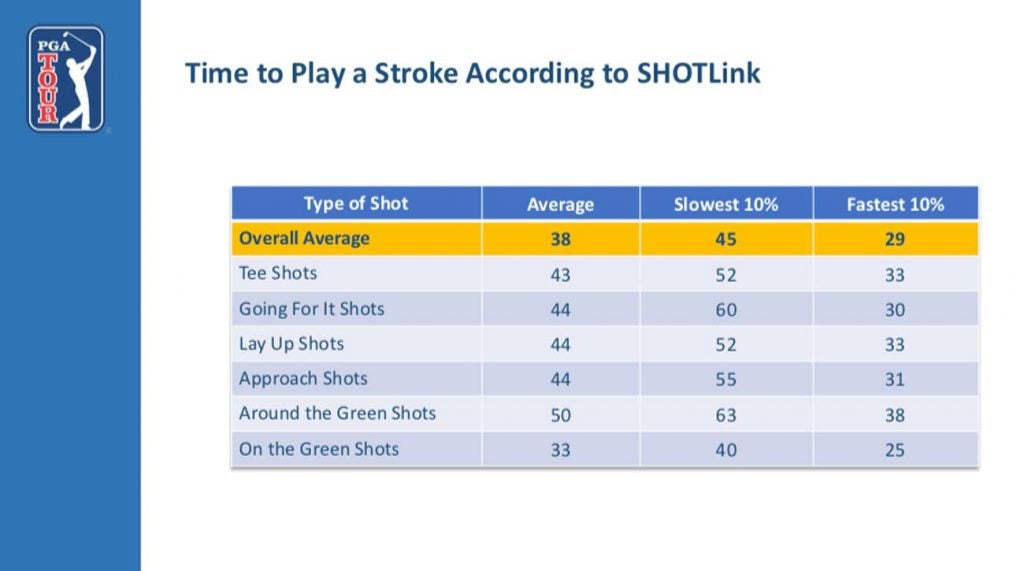A shot clock, in the same respect as the shot clock in the NBA or the play clock in football would not be appropriate for the PGA tour.
Shots in golf are not congruent in the amount of time they take, so if you were to average the amount of time for play and make that the shot clock time a noticeable number of all shots would naturally take more time than the average.
For example, lets say a player is facing a difficult 15' putt for birdie late on Sunday that could give them a share of the lead. If the shot clock is 40 seconds, we would anticipate that if they make the putt the shot would take less than 40 seconds, if they miss the putt and tap in, the pair of shots would take less than 80 seconds.
If the player takes 60 seconds to properly read the putt and hole it for birdie, they were 20 seconds over the shot clock, but 20 seconds under the expected 2 putt par. In this case, wouldn't taking the addition 20 seconds to hole the first putt actually speed up play? If he happen to miss the first putt, walks up and taps in the par putt in less than 20 seconds, keeping the whole sequence to under 80 seconds, wouldn't he still be on time, even though he violated the shot clock in the first shot?

This chart was created based on data through the 2019 season, while a few years old it's probably still fairly accurate. Presumably you could create an expected total play time based upon these numbers for any given course and develop a total expected play time limit for the field. Rather than apply the time as a single per shot clock, apply it like a chess clock.
At the start of a round, each player could be given X minutes to play, Once its there turn to play for a given shot during the round the clock starts and it stops again once the ball is struck. If a group arrives on the tee of a hole and the fairway is not clear, the clock would not start for any player. It would only be active if the next shot is clear for play. This could be potentially managed by the walking scorer of the group and always be available to the player to be known.
Using a chess clock type timing systems would allow a player to take more time when they feel is necessary on particular shots, allowing them to make up time on simpler shots. Tap in putts and holes where the drive is straightforward, for example. It doesn't disrupt a players overall playing process, but encourages them to speed up their process on the whole.
If the clock strikes zero and the player is still on the course, they could be penalized accordingly. Potentially something like 1 shot will be added to the score of each remaining hole yet to be completed. So if the player runs out of time on the 16th fairway, a 1 shot penalty would be assessed to the 16th, 17th, and 18th holes.
Using the tour average above and current tour average statistics, for a common par 72 I'd estimate the expected time to play would be ~47 minutes. For the Slowest 10% player, their expected time to play would be ~58 minutes. Which would put them more than 3 holes behind the pace of the average player. Getting a 4 shot penalty each round for playing slow would quickly force those players to pick up the pace, or risk missing the cut every week of the year, bouncing them out of the tour at the end of the season.